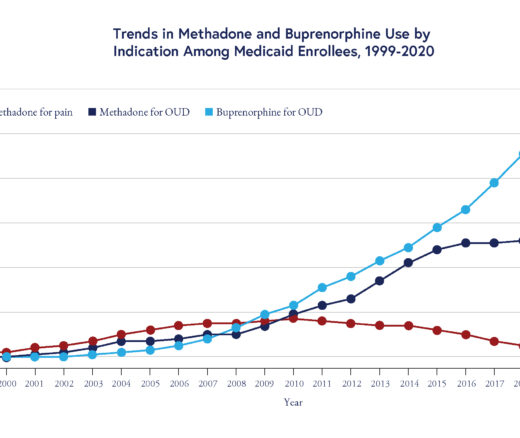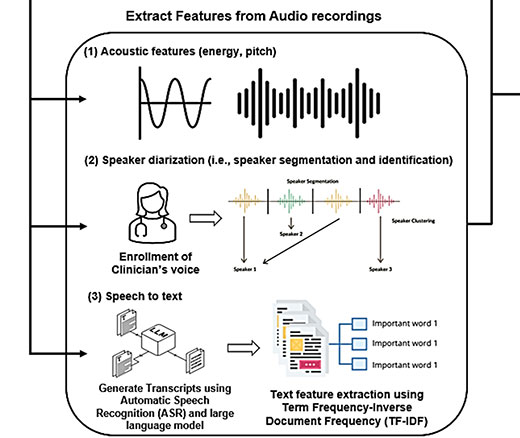
Inside Medicare’s Stalled Shift to Value-Based Care
Former CMMI Leader Liz Fowler Cites Rigid Federal Scoring Rules and Bureaucratic Impatience for Pilot Failures
News | Video
A Leonard Davis Institute of Health Economics (LDI) initiative connecting its minority research scholars to a little-known program that adds additional funds to National Institutes of Health (NIH) research grants has been picked up by the University of Pennsylvania Library System that is now promoting the program to researchers across the campus.
Called the NIH Research Supplements to Promote Diversity in Health-Related Research, the program was launched in 1989 but is not widely known. It offers additional funding to principal investigators (PIs) who have been awarded NIH grants additional funding to recruit and support the development of a young scientist from an underrepresented background in biomedical research. The supplemental funding covers the young candidate’s salary, supplies, travel, fringe benefits, and tuition remission in some circumstances.
Also known as the Diversity Supplements Program (DSP), it was designed to increase the diversity of the biomedical research workforce by placing more young scientists from underrepresented groups on NIH research teams where they can pursue the training and professional development required to progress toward their own independent research careers. Each of the 27 separate institutes that make up the NIH has its own DSP version.
But, despite the academic health services research community’s broad focus and large involvement in health equity issues, this opportunity to gain additional funds and staff for their NIH research projects while simultaneously advancing diversity within their own ranks has gained little traction. A December 2021 analysis in the Journal of the American Medical Association (JAMA) reported that in 2020 only 2% and 5% of NIH Research Project Grants (RO1) were awarded to Black and Latino scientists, respectively. It went on to report that “only 4.5% of active RO1 grants had received a diversity supplement award.”
The authors noted that, “This suggests that Diversity Supplements remain an infrequently awarded tool to promote diversity in the biomedical workforce. Diversity Supplements have the potential to increase representation of historically underrepresented groups in research. Yet many researchers report limited knowledge about the DSP.”
Shortly after that paper was published, LDI began researching the DSP as a potential resource as part of the support services it offers the minority research scholars in its Center for Improving Care Delivery for the Aging (CICADA). Funded by the National Institute on Aging (NIA), CICADA is a multidisciplinary research initiative aimed at recruiting, mentoring, and developing minority junior faculty members into accomplished research scientists. That process begins with the pilot research projects related to aging and health care they undertake with their mentors at LDI. Each year, LDI brings in three new CICADA scholars for a year-long mentorship.

“As we learned more about DSPs, it became clear to us that this would be a great resource for our own CICADA scholars as well LDI’s Senior and Associate Fellows,” said Traci Chupik, Director of Operations at LDI.
In November, 2022, two former LDI CICADA Scholars — Jasmine Travers, PhD, RN, and Maya N. Clark-Cutaia, PhD, RN—co-authored two articles detailing the NIH DSPs that appeared in the same issue of Nursing Outlook. One paper was based on interviews with both mentees and mentors currently engaged in the program. The other was based on interviews with program administrators who ran the program. Travers, PhD, RN, and Clark-Cutaia, PhD, RN, are now both Assistant Professors at New York University’s (NYU) Rory Meyers College of Nursing.
Simultaneously, LDI began building out an online DSP resource center that, among other things, includes a matching system in which interested potential DSP mentees and mentors can connect with each other to explore applying for an award. The resource center also includes an online repository of successful DSP applications to help interested individuals understand the overall application process more quickly.
“Our goal was to create a one-stop resource and directory that could be used by either mentees or PIs interested in getting involved in this important NIH program,” said Chupik. “We also saw that these DSP awards were relevant to literally any Penn scientist involved in health care-related research, and we connected with Penn Libraries to see if they would be interested in creating a larger information resource that could reach a wider campus audience beyond LDI,” said Chupik. “They jumped at the idea. The Libraries’ Manuel de la Cruz Gutierrez, Interim Director for the Holman Biotech Commons and Director of Data & Innovation Services, and Neetu Rajpal, Bioinformatics Librarian, produced the new Penn Libraries Guide to NIH Diversity Supplements.”
As a follow-up to those developments, LDI organized the October 20 virtual seminar that brought in two top NIH DSP officials to provide in-depth explanations of how the program works and how both PIs with NIH grants or minority scientist students, post doctorates, and other eligible investigators can initiate applications for a supplement-funded position.

In the video recorded seminar (above), Maria G. Carranza, PhD, Co-Chair of the NIA Diversity Supplements Committee, and Dorothy Castille, PhD, Senior Program Official in the Office of the Director of the National Institute on Minority Health and Health Disparities (NIMHD), described the program and its application process with detailed slides.
Underrepresented groups eligible for the program include Blacks or African Americans, Hispanics or Latinos, American Indians or Alaska Natives, Native Hawaiians, and other Pacific Islanders. Individuals from rural or disadvantaged backgrounds are potentially eligible as well.
In response to an audience question, Carranza pointed out that in general, women are not considered underrepresented at the national graduate school level or throughout biomedical research in general where they are the majority. But for the purpose of the DSP, they may be considered underrepresented at the faculty level of a particular educational institution.
“Diversity Supplements are not grants,” said Carranza. “They are administrative supplements that are tied to an existing and active parent grant and typically, they can cover up to two years. It’s also very important to note that independent or ancillary clinical trials are not allowed through a Diversity Supplement. A full list of the eligible parent grants can be found in the funding announcement.”

Castille pointed out that DSPs can be “one of the fastest ways to get money to a diverse scholar. But it’s also a very nice step up after a scholar’s postdoctoral fellowship. Or it can be a step for an early-stage investigator coming into a new position in a university.”
She also emphasized that eligibility details of DSPs varied somewhat across NIH’s different institutes. She said her own NIMHD “strongly prioritizes postdoctoral fellows and junior faculty-level candidates, that is, those candidates who have not yet received RO1 funding.”
“The most important part of the beginning process is to identify the institute that interests you and know its mission,” Castille said. “You can enter the application process in two different ways. A candidate can approach a PI that they’re working with, or whose work that they admire. Or a PI can identify a DSP candidate that seems well suited for their research team.”
“To find PIs working in an area of interest,” Castille continued, “you can use the NIH RePORTER to search through current grants. If you expect to get funded before the end of the fiscal year, which ends at the end of September, submitting prior to the June 1 submission deadline is a really good idea.”


Former CMMI Leader Liz Fowler Cites Rigid Federal Scoring Rules and Bureaucratic Impatience for Pilot Failures

A Major European–U.S. Hospital Study Finds That Changing How Hospitals Are Organized Reduces Burnout and Turnover While Improving Care Quality

Penn LDI Senior Fellow Dominic Sisti Cites “Alarming Levels”

Chart of the Day: Methadone Use for Opioid Use Disorder Tripled From 2010–2020, Yet Only One in Four People With Addiction Receive Medication

Researchers Use AI to Analyze Patient Phone Calls for Vocal Cues Predicting Palliative Care Acceptance

Medicare’s Payment Plan Can Ease Seniors’ Crushing Drug Costs but Medicare Buries it in the Fine Print